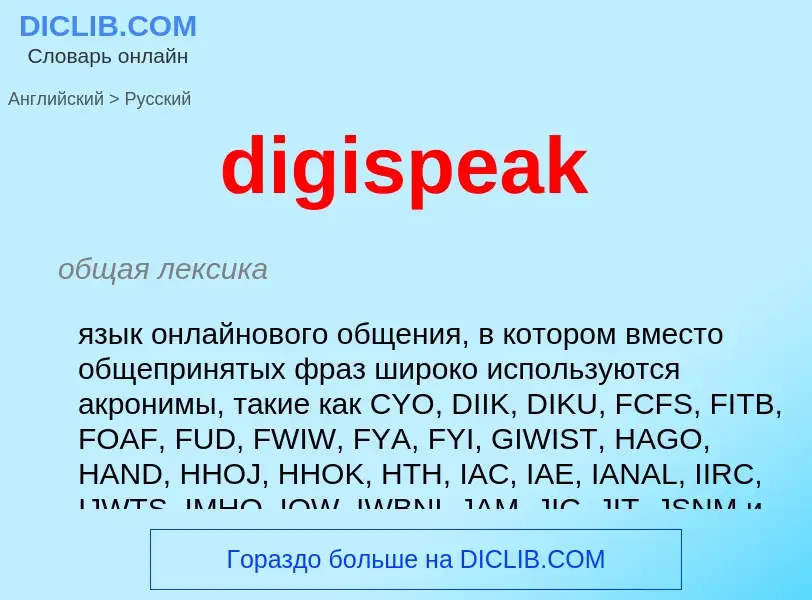Vertaling en analyse van woorden door kunstmatige intelligentie ChatGPT
Op deze pagina kunt u een gedetailleerde analyse krijgen van een woord of zin, geproduceerd met behulp van de beste kunstmatige intelligentietechnologie tot nu toe:
- hoe het woord wordt gebruikt
- gebruiksfrequentie
- het wordt vaker gebruikt in mondelinge of schriftelijke toespraken
- opties voor woordvertaling
- Gebruiksvoorbeelden (meerdere zinnen met vertaling)
- etymologie
digispeak - vertaling naar russisch
общая лексика
язык онлайнового общения, в котором вместо общепринятых фраз широко используются акронимы, такие как CYO, DIIK, DIKU, FCFS, FITB, FOAF, FUD, FWIW, FYA, FYI, GIWIST, HAGO, HAND, HHOJ, HHOK, HTH, IAC, IAE, IANAL, IIRC, IJWTS, IMHO, IOW, IWBNI, JAM, JIC, JIT, JSNM и сотни других
дословная передача
цифровой язык, диджиспик
Definitie
LOL is internetese for laugh out loud
Wikipedia

Internet slang (also called Internet shorthand, cyber-slang, netspeak, digispeak or chatspeak) is a non-standard or unofficial form of language used by people on the Internet to communicate to one another. An example of Internet slang is "LOL" meaning "laugh out loud". Since Internet slang is constantly changing, it is difficult to provide a standardized definition. However, it can be understood to be any type of slang that Internet users have popularized, and in many cases, have coined. Such terms often originate with the purpose of saving keystrokes or to compensate for small character limits. Many people use the same abbreviations in texting, instant messaging, and social networking websites. Acronyms, keyboard symbols, and abbreviations are common types of Internet slang. New dialects of slang, such as leet or Lolspeak, develop as ingroup Internet memes rather than time savers. Many people also use Internet slang in face-to-face, real life communication.


